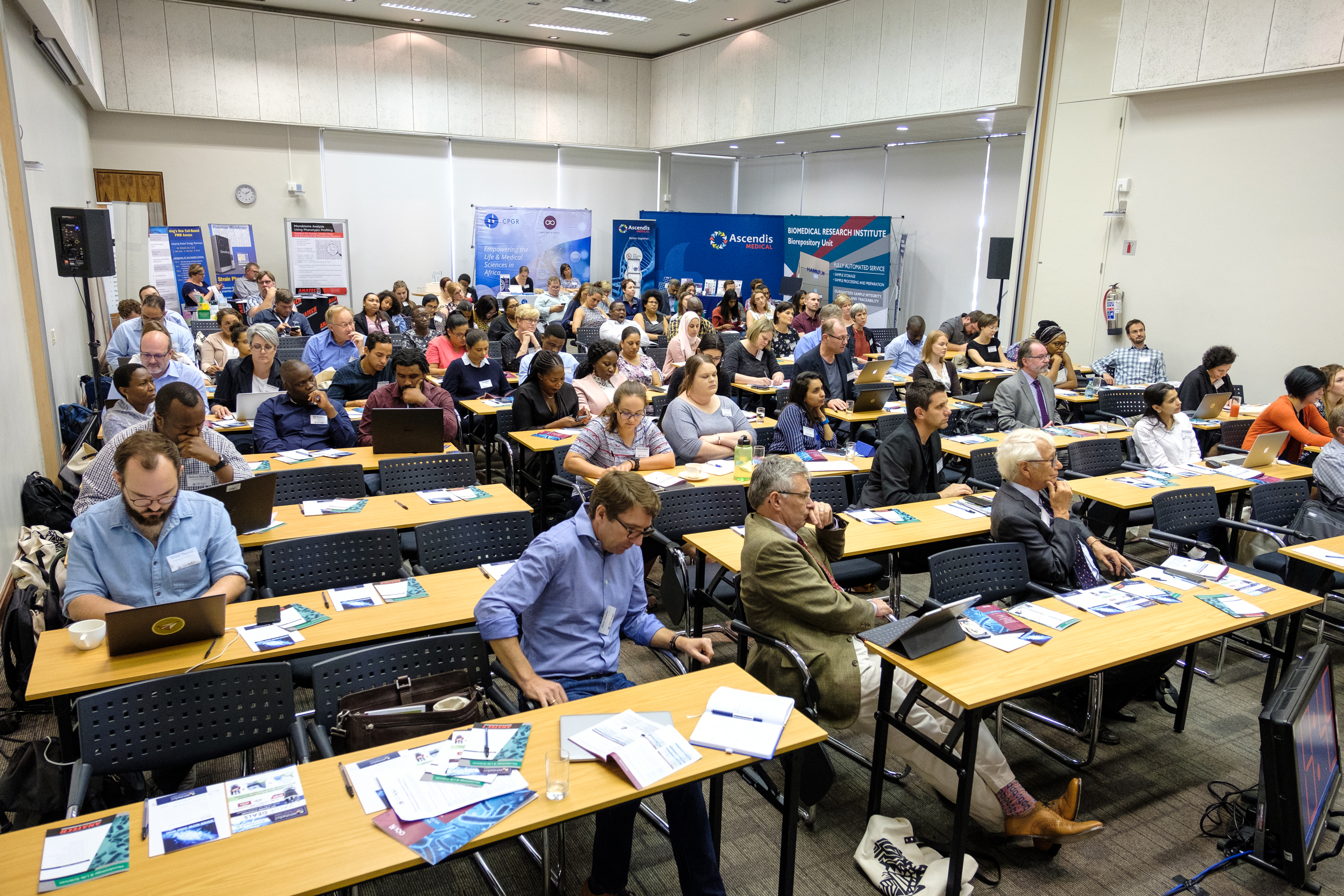Stellenbosch University (SU) was the proud sponsor of the first Microbiome Workshop and Symposium recently, with more than 125 experts from around the world gathering in Stellenbosch to share the latest scientific advances in the field of the microbiome and the metabolome last week.
Prof Wim de Villiers, SU's Rector and Vice-Chancellor, says a lot of new information was presented and it was also a very effective platform for the University not only to identify new research projects but also to connect more with international researchers on a multi-faculty and multidisciplinary level.
This event also gave the host and newly-established African Microbiome Institute (AMI), based in the SU Faculty of Medicine and Health Sciences, more momentum to get off the ground. The Faculties of Science and AgriSciences were also involved in presenting this symposium.
The AMI is unique in Africa, primarily because of its cross-faculty nature and its specific focus on all microbiomes of the anthroposphere – the ecosystems that are directly associated with human activities.
Prof De Villiers and Prof Stephen O'Keefe, Director of AMI and Professor in the Division of Gastroenterology at the University of Pittsburgh, were on the organising committee of the event. O'Keefe was also the programme director at the event.
This event also stimulated thoughts and possibilities to include new academic programmes within the curriculum covering the topic of the microbiome and related information. The microbiome is defined as the aggregate of all the microbial species – bacteria, fungi, protozoa and viruses – that live in any given environment, including on and inside the human body.
“These microbial ecosystems were inaccessible to science because of their tremendous complexity the presence of thousands of species, but today they can be studied primarily through their genetic constitution and metagenome," says Prof O'Keefe. “This dramatic change in our ability to analyse these systems has led to huge scientific breakthroughs in the past few years. The role of the gut microbiome in human physical and mental health, in particular, has received widespread attention in the popular literature and social media because of their high impact on health and disease."
Prof De Villiers also attended the symposium out of interest in the microbiome and to find out about the new developments. He is an expert in Gastroenterology and was the Head of Gastroenterology at the University of Kentucky and Administrative Head of the Good Samaritan Hospital in Lexington before his present position at SU. Working as a gastroenterologist, he became a respected medical researcher.
“The presentations were of high quality and a lot of new knowledge was shared – not only in the health field but also in Gastroenterology, Wine Biotechnology, Bioinformatics, Genetics, Microbiology, Water, Soil, Agriculture, Food Sciences, Surgery and Nutrition and Reproduction," he said.
Symposium themes were “Recent advances in the analysis of the microbiome and metabolome"; “Advances in the understanding of the impact of the environmental microbiome on the human microbiome"; and “The human microbiome in health and disease".
Other topics discussed, included “Controlling the wine microbiome: Bringing change to the global wine industry"; “The microbiome in South African homes: Biodiversity boost or a silent killer?"; “Microbiome analysis of the viable bacterial community present in untreated and treated roof harvested rainwater"; “The association between dietary fibre deficiency and high-income lifestyle-associated diseases: Burkitt's hypothesis revisited"; “The emerging crisis in antimicrobial resistance and what resistome analysis can tell us"; “Tuberculosis disease and treatment – does the microbiome have a role?"; and “Investigating urinary and faecal metabolic differences among native Africans, African Americans and Alaskans using mass spectrometry".
- To read more about the African Microbiome Institute (AMI), click here.

